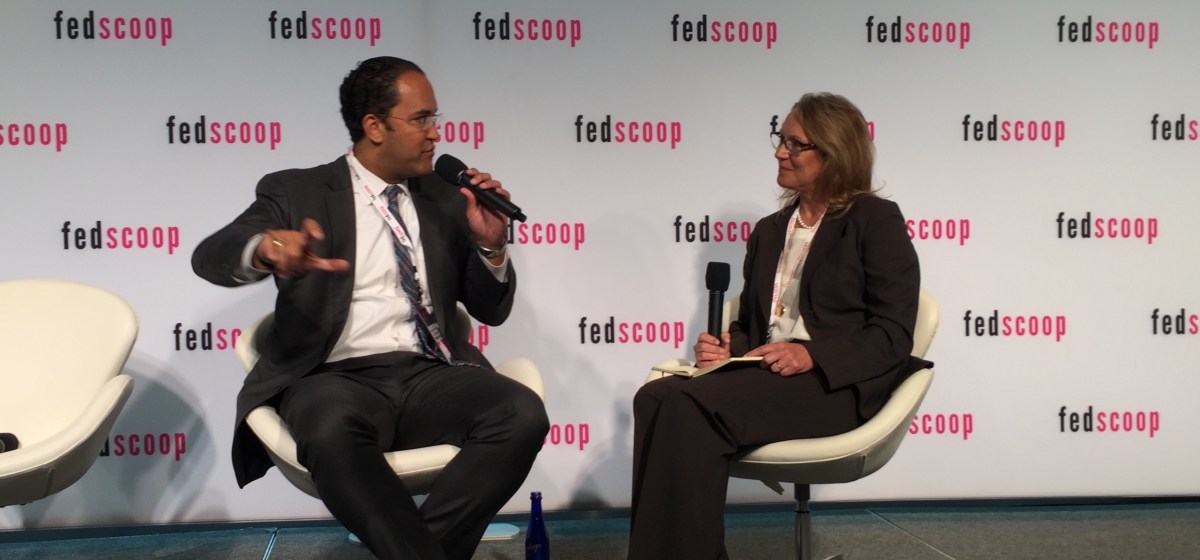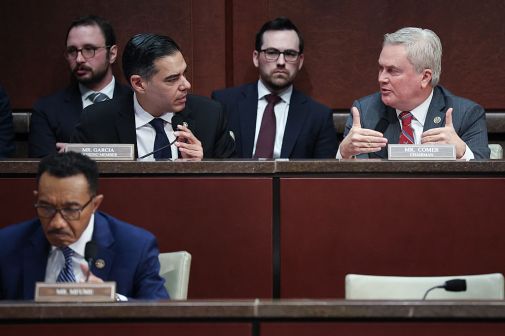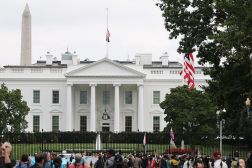President’s budget request to include IT modernization fund, Rep. Hurd says

President Donald Trump’s budget request is going to bring back a proposal for a centralized IT modernization fund housed in the Office of Management and Budget, Republican Rep. Will Hurd told FedScoop on Tuesday.
The main unknown, for now, is the price tag on Trump’s request for the fund, said Hurd, who is chairman of the Information Technology Subcommittee of the House Oversight and Government Reform Committee. The fiscal 2017 budget request from President Barack Obama had called for a $3.1 billion centralized revolving fund to “address an estimated $12 billion worth of modernization projects over 10 years.”
“This concept of a centralized fund at OMB is definitely going to be in the president’s budget,” the Texas lawmaker said after participating Tuesday at FedScoop’s IT Modernization Summit. “And the question is — how much they’re going to be asking. We don’t know that answer yet.”
That answer is going to affect the Congressional Budget Office’s scoring of a bill Hurd plans to reintroduce this year — the Modernizing Government Technology Act. The bill passed the House last session but ultimately lagged in the Senate after the CBO said the bill would cost billions.
The Modernizing Government Technology Act of 2016 would have created individual IT working capital funds for each of the 24 CFO Act agencies and a centralized IT modernization fund from which executive branch agencies could apply to draw.
“However much they ask is ultimately going to have an impact on our CBO score, even though, I don’t know how much appetite there is … for Congress to ultimately fund the [modernization fund]. And so that’s one of the frustrating things for me, is when CBO is scoring things they’re making it based on statements by the White House, versus what is likely to happen,” Hurd said.
He said if appropriators don’t appropriate any money for the centralized fund, the cost for the bill is zero in year one. Over time, Hurd told reporters after Tuesday’s talk, the centralized fund would be capitalized through “any money from the working capital funds [that] is not used after three years.”
Hurd has been working to tweak the language of the bill before reintroduction, he said during the FedScoop event. The bill will not be reintroduced this week, he said, but will be “very soon.”
“I think the changes that we’re making changes some of their assumptions,” he said to FedScoop of the CBO. “We think we have a pretty close to final version of the bill that we’re talking with CBO now, so that we can kind of understand that, before we ultimately drop this bill.”
When asked if Trump requesting money for a centralized fund backs him into a corner with the CBO, Hurd demurred.
“It doesn’t back me into the corner. The president’s budget is a statement of priorities. But Congress funds the government. And when those two things are different, I look at what the reality is going to be,” he said.
If appropriators decided to put money into the centralized fund, the bill would cost some money, he acknowledged.
“It is going to increase the CBO score, which is fine. But our job is to explain that to everybody, on what does that CBO score actually mean,” he said. “And the difference we have now versus last year is we’re not worried about the clock.”






